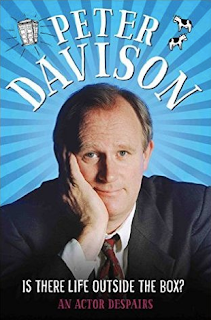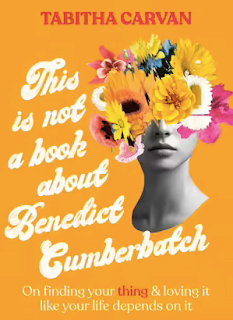Is There Life Outside the Box? thus refers both to the TARDIS phone box and also to television itself: Davison has worked primarily on British TV for his whole long career. He's currently probably most well known for being David Tennant's father-in-law (DT wrote the introduction). The subtitle, An Actor Despairs, is apparently a play on a famous acting manual, An Actor Prepares, a reference which was totally lost on me but was luckily explained early on.
Davison is an engaging companion, sharing some well worn acting anecdotes, some more surprising stories, and a some personal insights too. He experienced his own wilderness years in the 1990s, unnoticed by me, because I kept seeing repeats popping up. I have a particular soft spot for a brilliant but obscure comedy-drama series called A Very Peculiar Practice, set in a university medical centre and written by Andrew Davies, who went on to write about a million adaptations including Pride and Prejudice. One thing I learned about Peter Davison which was I'd had no idea about is that this apparently super-Anglo, blond and blue-eyed actor has a black father, born in the West Indies.
In high school, my best friend and I made a pact that when our respective crushes (hers was Paul Darrow from Blake's 7) grew old and grey and weren't famous anymore, we would go over to the UK and track them down and take care of them in their dotage. Alas, Peter Davison seems to be still quite hale and active and well-loved, and in little need of my assistance. I might give it another twenty years!



























